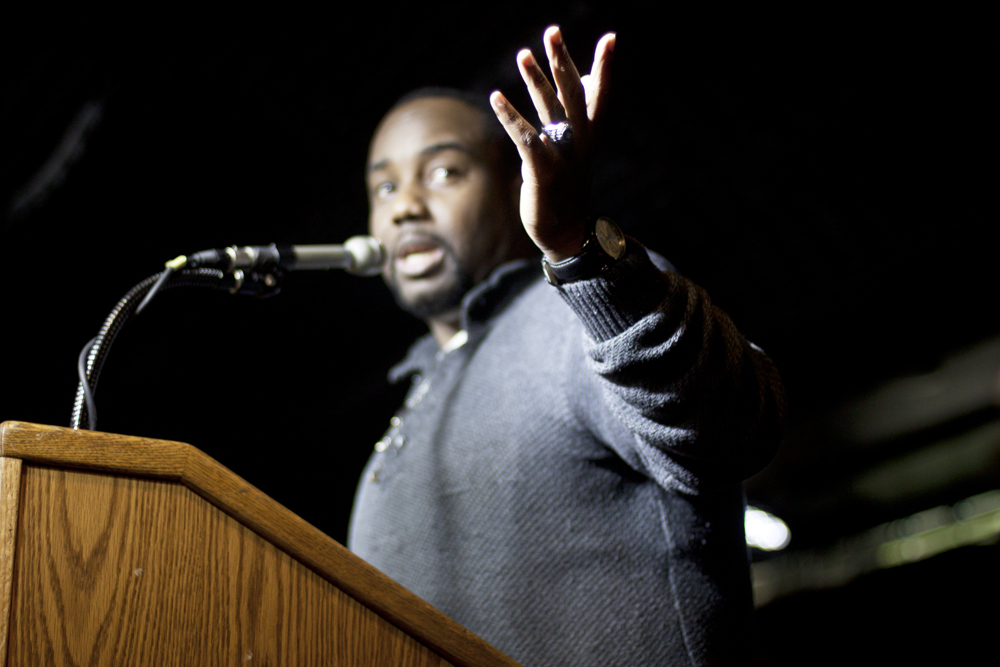The Associated Students of Portland State University (ASPSU) held election debates on April 6–8. The debates took place on Zoom and were live-streamed on Facebook, so the public could watch and ask questions. Candidates discussed student engagement, tuition and fees, transparency and disruptions caused by COVID-19.
April 6: Presidential and vice-presidential debate
Two presidential candidates, each with their vice president, participated in the debate.
Motutama Sipelli is running for president, with Victor Chavez-Gonzalez for vice president, on the “In the Mood for Change?” slate.
Sipelli is a senior majoring in pre-med Health Science and Biology and has been in ASPSU for one year. He is the current director of the Student Life Committee.
“I think the best way to get other people to be engaged is for ASPSU itself to be more engaged,” Sipelli said. “I feel like student voices are not heard properly and sometimes they’re ignored. I want to change that. I’ll make sure every student’s voice is heard. I want to make sure students are comfortable coming to us for their concerns, to use us as their student champion and advocate.”
“It’s the start of something new, a re-formation of what student government should mean on our campus,” Chavez-Gonzalez said.
They are running against Jose Rojas Fallas for president and Joshua Childs for vice president, both of whom are on the Portland State Action slate.
Jose Rojas Fallas is pursuing a master’s degree in economics. He has been in student government for three years. He is currently the chair of the Student Fee Committee.
“People have apathy toward ASPSU,” Fallas said. “I believe we can bring ASPSU back to the forefront to make sure all students on campus know they have representation in everything university related. We can actually enact change from within. Our main focus is to make sure people know ASPSU is an actual body that can help students, and make sure all students are being heard.”
Joshua Childs said the Portland State Action party’s goals are “lowering overall costs for students, local and university representation and addressing food insecurity and accountability within PSU and ASPSU.”
April 7: Student Fee Committee debate
Seven candidates are running for the seven positions on the SFC: Zee Brewer and Kierra Wing on the “In the Mood for Change?” slate, Tatum Duke, Aydia Johnson, Hayden Farris and Christopher Silago on the Portland State Action slate, and Hakan Kutgun as an independent. Duke, Johnson and Kutgun are all current members of the SFC.
“Support resources for students with disabilities, childcare for students, SMSU, student clubs, the rec center, a big chunk of student employment on campus—these are all made possible by student fees,” Kutgun said.
A huge pot of the money that gets collected from students actually goes back to the students in payment,” Duke said, adding the SFC reduced student fees as little as it did this term in order “to try to keep as many students working as possible.”
The candidates agreed students should understand the difference between fees and tuition.
“It is a good thing students are actually in charge of allocating these funds,” Kutgun said. “But there’s a distinction between student fees and tuition. While the only source of revenue for student fees is students themselves, there are multiple avenues of revenue that can be explored to reduce tuition like state support, increased philanthropy and all that. I believe university administration has much more flexibility in terms of getting more money.”
“PSU is increasing tuition yearly more than the inflation rate,” Farris said. “Tuition should be increased relative to inflation, but anything [increased beyond the inflation rate], PSU should have an explanation for every dollar.”
Candidates debated ways to increase transparency. Brewer and Wing spoke of making an interactive website, where students can find information about where their fees go.
“SFC and [ASPSU] decisions may be public, but do students have to seek that out, or is it easily publicly available to them?” Farris said. “Transparency is important. It should be one of our top goals, and the best way to do that is by helping students find us.”
April 8: Senate debate
Four candidates participated in the senate debate: Elijah Roach and Nicholas LaHusen on the Portland State Action slate, Teri Walters on the “In the Mood for Change?” slate and Nathan Mapes as an independent. Lahusen, Walters and Mapes are current members of ASPSU.
The candidates who attended are the only students running for the Senate’s 16 seats. The positions have proven hard to fill, so whether or not they debated, candidates are assured a position.
The prospective senators all support postponing commencement, and agreed PSU should have taken students’ voices into consideration before making a decision. They also stressed the importance of student input in the university’s decision to restrict access to campus buildings, such as Smith Memorial Student Union.
ASPSU Advisor Candace Avalos closed with a message urging more students to run in the Senate election.
“We’ve got a bunch of seats open for Senate, so if you’re interested in joining, this would be a great opportunity to do a write-in campaign,” Avalos said. “That means you tell your friends to put your name in the write-in section, as long as it has your name and email [and] some way that I can contact you to let you know if you win. Spread the word. We’ve got lots of opportunities for people to get involved, and I hope you all will come out and vote.”
Virtual polls will open on April 13 at elections.aspsu.pdx.edu, and close on April 29. Results will be announced May 1.






